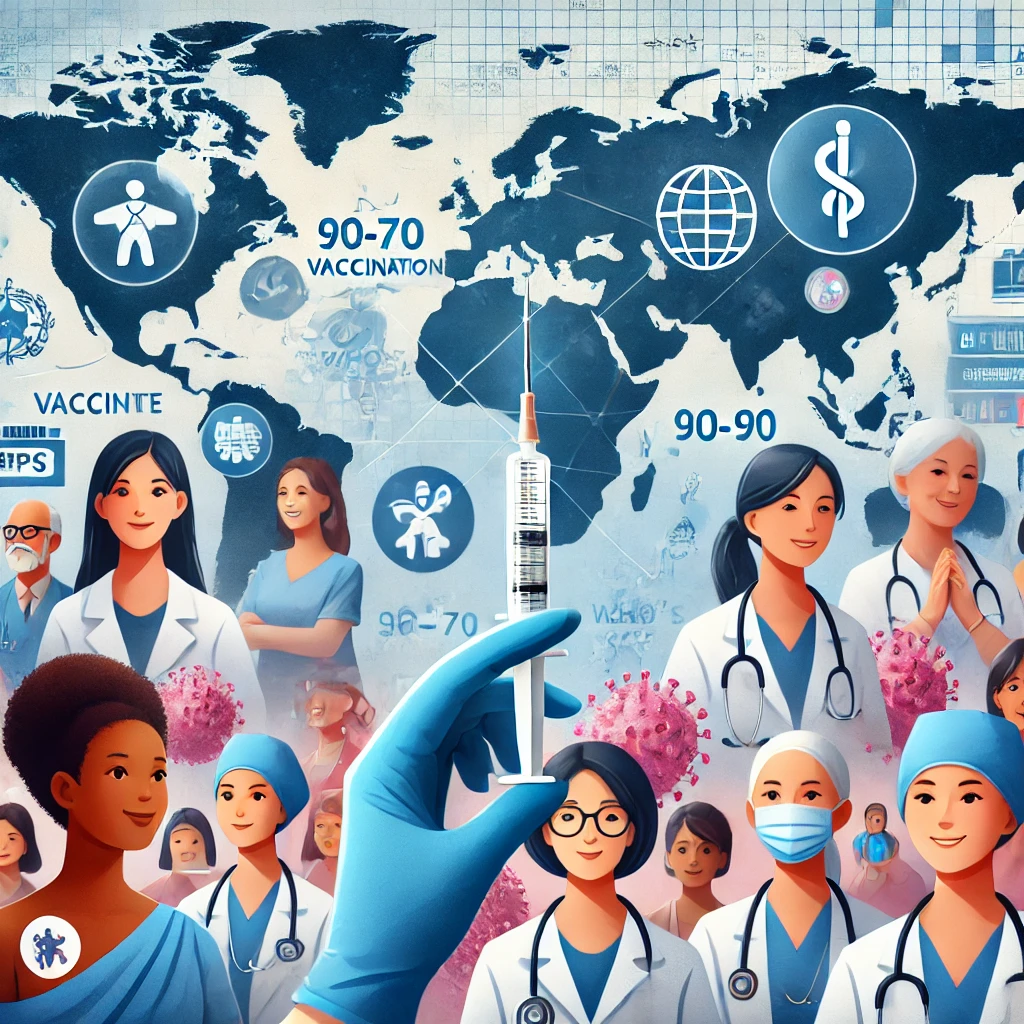Ghana Gears Up for HPV Vaccination Campaign to Combat Cervical Cancer
The impending introduction of the HPV vaccine in Ghana represents a landmark advancement in the country’s public health agenda.

- Country:
- Ghana
Cervical cancer remains a leading cause of cancer-related deaths among women worldwide, claiming over 340,000 lives annually despite being almost entirely preventable. The global burden is disproportionately high in low- and middle-income countries, particularly in sub-Saharan Africa, where limited access to early detection, screening, and vaccination results in nine out of ten cervical cancer deaths. Ghana faces this daunting public health challenge head-on, preparing to launch a nationwide Human Papillomavirus (HPV) vaccination campaign targeting girls aged 9 to 14 years in September 2025, marking a critical milestone in the country’s fight against cervical cancer.
The Cervical Cancer Burden in Ghana and Africa
In Ghana, cervical cancer accounts for approximately 3,000 new cases and nearly 2,000 deaths each year. These statistics highlight a severe health crisis that transcends medical boundaries into issues of gender equity, as cervical cancer predominantly affects women in their most productive years. The disease places immense strain not only on the women it afflicts but also on their families, communities, and the national health system.
The World Health Organization (WHO) has identified HPV vaccination as the most effective preventative tool against cervical cancer, underscoring its critical role in global strategies aimed at eliminating cervical cancer as a public health threat.
Ghana’s National HPV Vaccine Rollout Strategy
In alignment with WHO’s global strategy, Ghana’s Ministry of Health and the Ghana Health Service (GHS), with technical and financial support from WHO and Gavi, the Vaccine Alliance, are launching a comprehensive HPV vaccination program. The campaign will initially target girls aged 9 to 14 years through a national school-based outreach, followed by integration of the HPV vaccine into the routine immunization schedule for girls aged 9 years.
The decision to prioritize school-based delivery is strategic. Schools provide direct access to the target demographic, facilitating high coverage rates. According to WHO recommendations, vaccinating girls before exposure to HPV is essential, and most girls within this age range are enrolled in school, offering an efficient platform for vaccine administration.
Mobilizing the Education Sector for Successful Vaccine Delivery
Ahead of the rollout, the Ghana Health Service hosted a National Education Stakeholder Engagement forum in Kumasi, bringing together key representatives from the Ghana Education Service, Ghana National Council of Private Schools, Ghana National Association of Private Schools, and development partners from all 16 regions. The forum aimed to galvanize the education sector’s support, recognizing that teachers and school administrators are influential community leaders who can champion vaccine acceptance, combat misinformation, and encourage parental consent.
Dr. Fiona Braka, WHO Representative in Ghana, highlighted the importance of the education sector’s role: “Cervical cancer continues to claim too many lives, but HPV vaccination remains our best chance at prevention. Engaging education stakeholders today is vital—to rally support and protect the future of girls from cervical cancer.”
Participants discussed tailored communication strategies to address myths and misconceptions surrounding HPV vaccination, emphasizing the need for culturally sensitive advocacy to build trust and community ownership. The meeting underscored that successful vaccine delivery depends on clear, transparent messaging and the active involvement of teachers as trusted messengers.
Voices from the Frontline
Dr. Fred Adomako-Boateng, Ashanti Regional Director of the Ghana Health Service, called the HPV vaccination campaign “not just a health intervention but a national duty and investment into our nation’s future.” He added, “Protecting girls today means a healthier generation and a stronger health system tomorrow.”
Echoing this sentiment, Dr. William Kwame Amankrah Appiah, Ashanti Regional Director of Education, emphasized the campaign’s critical role in safeguarding young girls’ health. “The support of our communities hinges on how well we advocate and communicate about the HPV vaccine, which is why this campaign is so important. We fully support it as a critical step toward protecting the health and future of our girls.”
Building Momentum Before the Launch
With the vaccine rollout only weeks away, Ghana is intensifying efforts across all regions to ensure readiness. Activities include training healthcare providers and educators, community sensitization programs, and engagement with parents and traditional leaders to foster widespread acceptance.
The integration of the HPV vaccine into the routine immunization schedule following the initial campaign will help sustain coverage and protection for future cohorts of girls. This approach aligns with the broader goal of cervical cancer elimination and supports Ghana’s commitment to improving women’s health outcomes.
Toward a Cervical Cancer-Free Future
The impending introduction of the HPV vaccine in Ghana represents a landmark advancement in the country’s public health agenda. By prioritizing collaboration between the health and education sectors and leveraging schools as vaccination platforms, Ghana aims to drastically reduce cervical cancer incidence and mortality rates.
As Ghana prepares to vaccinate a new generation of girls, the campaign is poised to save thousands of lives, promote gender equity, and alleviate the burden of cervical cancer on families and society. The collective effort of government bodies, international partners, educators, and communities will be pivotal in ensuring the success of this life-saving intervention.










